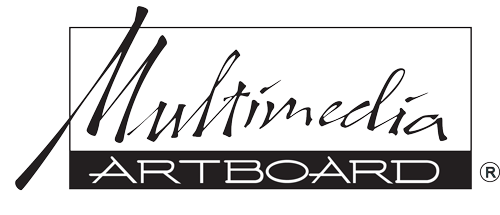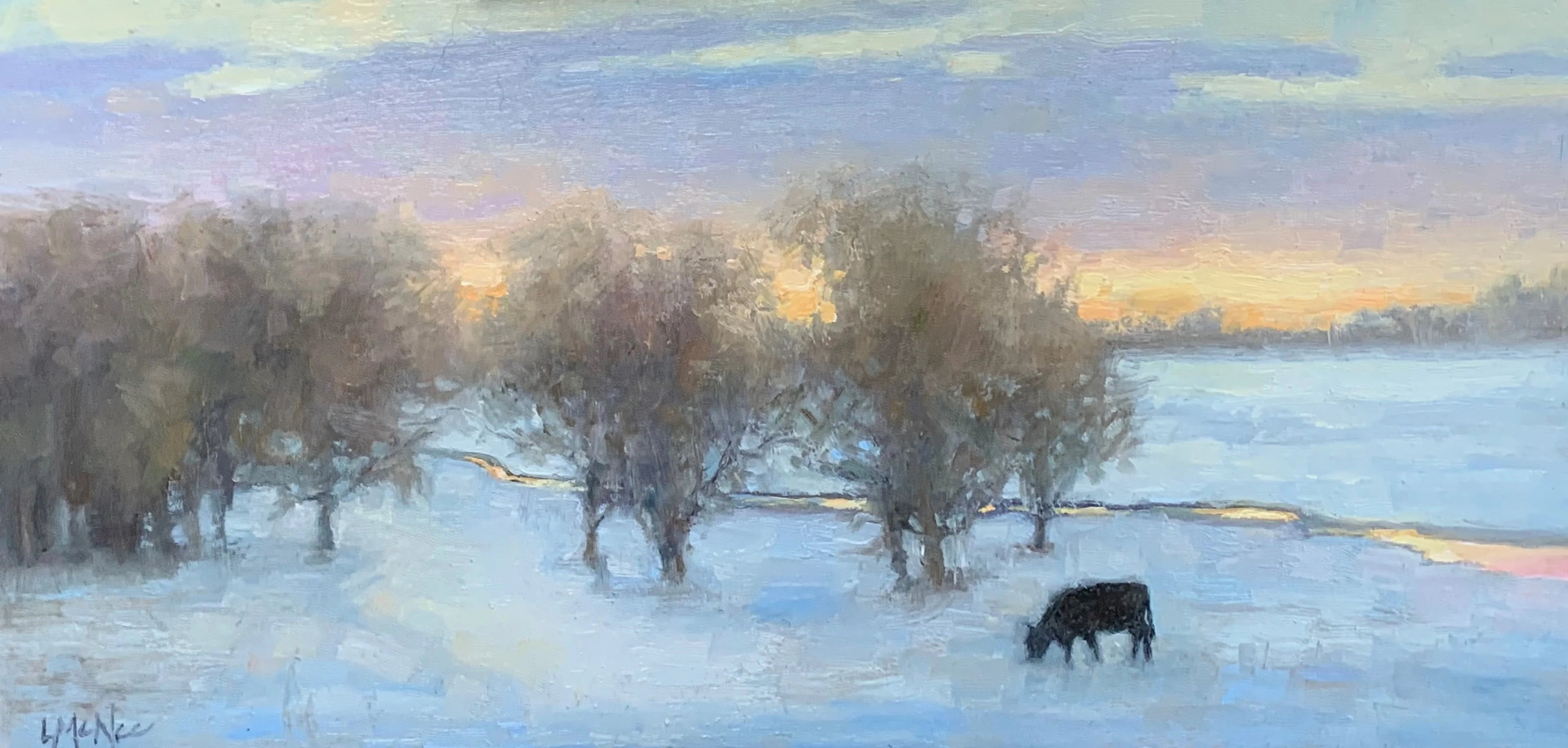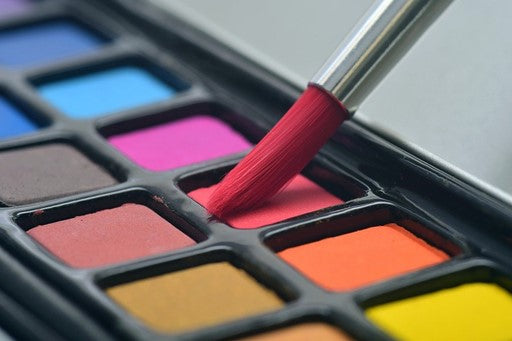Article: 6 Tips to Improve Your Art Skills
6 Tips to Improve Your Art Skills

Ask any two artists to explain their artistic journey, and you will get two very different stories. However, while the artistic expression of how we experience the world is uniquely individual, every established artist will tell you that the process of improvement is never-ending in the art world. There is always something new to learn and explore.
They will also tell you that every artist experiences creativity blocks and sometimes find themselves being their biggest critic. So, if you are feeling stuck, clueless, or miles away from progress, take a deep breath and remember that it's all part of the process. The trick is to stay motivated and continue working towards your goals.
Wondering how to improve your art skills? Here are six tips and practices that will help to take your art to the next level.
1.Choose a Medium that Resonates with You
If you're just starting to explore art, it's a good idea to experiment in several different mediums. Once you've had an opportunity to test the waters, it is advisable to specialize in the ones that resonate with you the most. If you regularly switch between mediums, it will take you considerably longer to master just one.
For example, if you do colored pencils for a day then switch to oil painting or pastel or, charcoal drawing, you will lose the continuity of the learning process for each of them. So, as you begin to explore the realm of art, think about what kind of artwork entices you the most.
If you examine different mediums attentively, you may discover that you prefer a specific style, process or medium of art. Maybe you find that sketching helps you to better visualize what you want to focus on in a painting. It's even important to consider how you feel when you're using a certain medium.
Ultimately, the best method to find the perfect medium is to experiment with it first. This may require some trial and error, but it will not be in vain. The lessons you gain from trying various artistic mediums will bring some clarity to the ones you're actually enthusiastic about.
2.Make a Plan & Stay Focused
Anyone can learn to sketch and paint. The key to improving one's art skills is to practice a specific technique over and over.
Formalize your plan by writing it down. Use a calendar to schedule time to practice and note what you'll be working on.
Make a list of all of your difficulties with painting or drawing. Let's say, if you're having trouble with mild value changes, you should spend time working on shading every day. Or perhaps you have trouble painting straight lines. In this case, you should practice painting lines until you feel like your muscle memory is tuned in a you're having an easier time controlling your brush.
Focusing on one or two techniques at a time is the easiest approach to enhance your art. Set aside time each day to practice the same technique until you have mastered it.
3.Make a Commitment to Practice
Just as with any other skill, your artistic abilities also require regular and consistent practice. Enhancing your abilities requires you to invest your time and energy into the process. There really is no substitute for hard work, and as an artist, you should be ready to give it your all to improve your skills.
Remember, just practicing every now and then isn't enough. You should be consistent in when and how you practice. Set aside time each day to dedicate to your artistic skills and try to learn something new at least once a week. Through this regular practice, you will learn to focus better on your art instead of just haphazardly replicating whatever is in your mind. It is also a great way to pinpoint your weaknesses and improve them.
Consider maintaining an art journal or a sketchbook for your practice work. Get into a routine of documenting your progress. Save important sketches for future work. Art journals and sketchbooks can serve as a great motivator. When you flip through the pages and realize just how far your artistic skills have come, you will want to continue practicing and polishing them!
Write a note to yourself about why you are making this commitment and what you hope to accomplish. It is because you ultimately want to sell your work? You just need some Me time? You want to improve a certain skill. Whatever it is, attach this commitment note to your plan.
4.Consider Giving Yourself Deadlines
If you are having a hard time completing any work or practicing, try setting deadlines for yourself. Deadlines may sound scary, yet they may be a wonderful motivator to get to work and ignite your creative urges. It will force you to search for new ideas and just try something. At the end of the day, you may be surprised to feel a sense of accomplishment. Many artists employ this tactic to motivate themselves, especially those who tend to work better under pressure. When a deadline approaches, it will focus your attention. Waiting until you feel inspired could mean days without practice. This kind of commitment to yourself can help you to keep practicing.
5.Welcome Feedback (And Criticism)
The importance of soliciting and receiving feedback cannot be emphasized enough. BUT you must be willing to accept criticism.
If you know another artist whose work you appreciate, consider asking for their opinion on your work. It will help you gain new perspectives. You can also ask for assistance on techniques that they may have mastered. Another option is to ask friends and family members for their thoughts. They may not be artists, but they can often point out something important that you may have overlooked.
6.Check Out Online Resources
Every artist needs guidance to improve their art skills. Luckily, there are many instructional resources on the internet, many of which are completely free. It is also an excellent idea to enroll in an art class to learn from experts in person. Here are some instructional mediums that you can consider.
-
Art Blogs: Visit different art websites to learn about new techniques and read material reviews. Social media platforms such as Pinterest and Facebook can direct you to several blog pieces, or you can simply conduct a search.
- YouTube: There are numerous artists on YouTube who will gladly show you their YouTube art films where you can learn different techniques and see the artists in action as they work on their art and teach.
- Online or In-Person Private Lessons: If self-study isn't for you, there are a variety of alternatives for private lessons/classes as well as degreed collegiate-level programs. You can also look for artists in your region who provide private sessions. Take it from someone who knows: nothing beats one-on-one sessions if you can afford it!
The Bottom Line
Choose one or several of these tips to get started on improving your skills today. Use the tactics that we've offered to commit to a plan. If there are a few specific things that you want to improve, put those in your plan. Accomplished artists will tell you that there talent didn't magically appear overnight. Their professional growth was deliberate. If you want to expand your skill set, the actions you take on a regular basis will help you to improve over time. Don't forget to celebrate your accomplishments!



